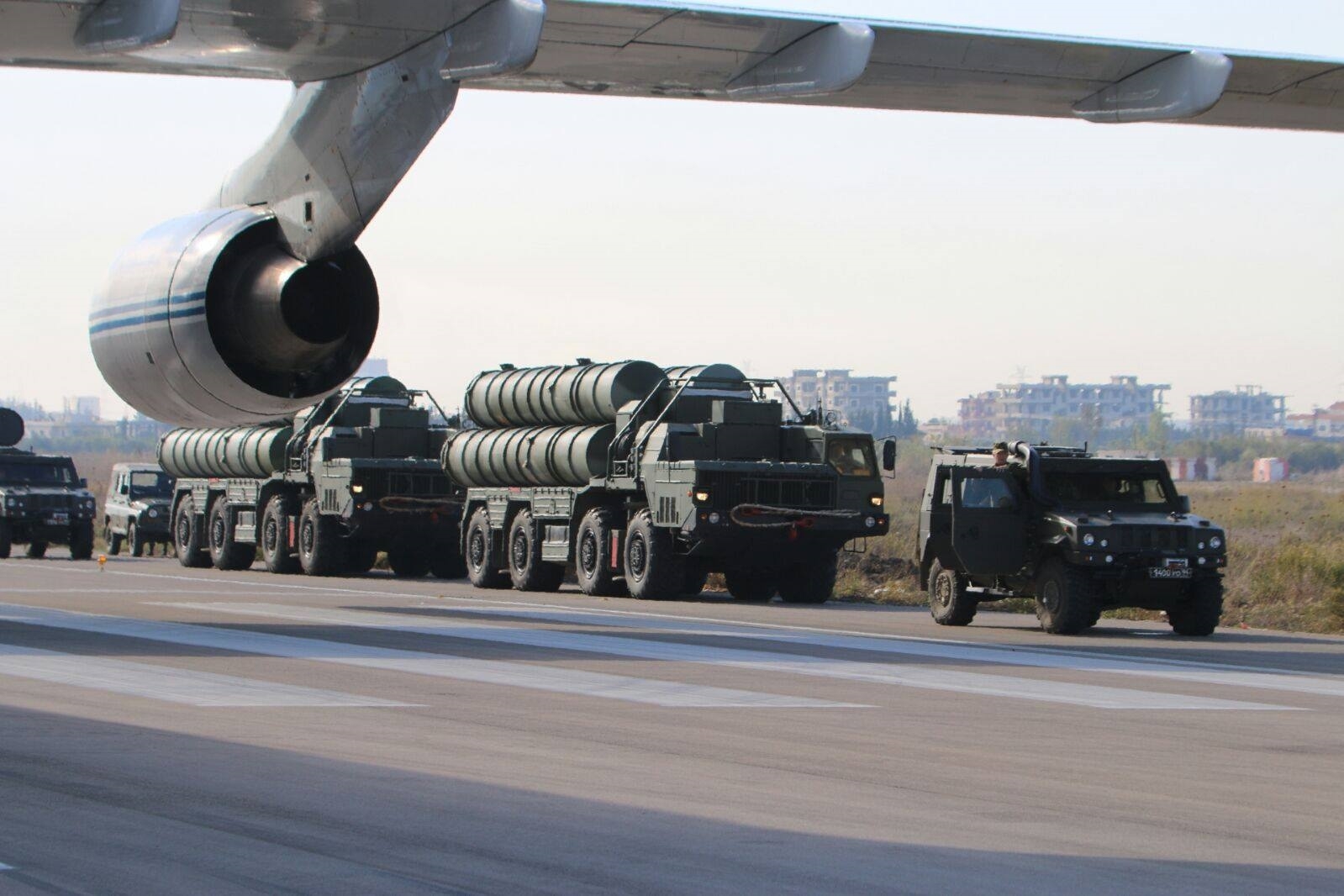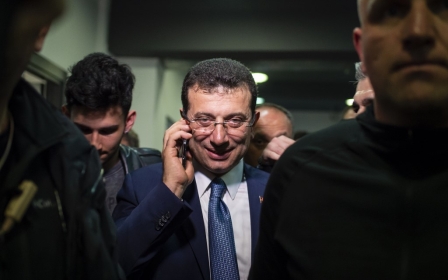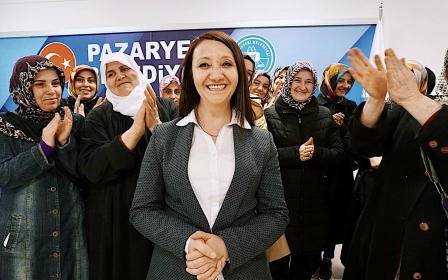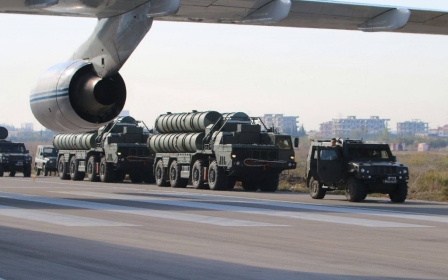Turkey mulling options to resolve 'unprecedented' S-400 crisis with US

Sources close to the Turkish government have told Middle East Eye that Ankara is drafting several options to prevent US sanctions over a deal for the Russian-made S-400 missile system, which experts say has already created an unprecedented crisis between the two Nato allies.
Ankara dispatched two ministers and a senior presidential aide to Washington earlier this week for a last ditch effort to shield the recession-hit Turkish economy and its defence industry from the growing threat of sanctions.
US Secretary of State Mike Pompeo said last week that Washington had told Ankara it could face retribution for buying the S-400s under a sanctions law known as Countering America’s Adversaries Through Sanctions Act (CAATSA), which is backed by a bipartisan group of senators and US officials.
The Pentagon has repeatedly told journalists that the existence of S-400s in Turkish airspace would compromise new generation F-35 fighter jets - which Turkey is currently awaiting delivery of from the US - possibly transferring crucial data to Moscow over its radar.
Turkey is a partner in the F-35 programme and has already paid more than $1.2bn into the programme.
New MEE newsletter: Jerusalem Dispatch
Sign up to get the latest insights and analysis on Israel-Palestine, alongside Turkey Unpacked and other MEE newsletters
Four F-35 jets belonging to Ankara are in the US for training purposes, while congressional legislation bars their physical transfer to Turkey until a solution is found to the crisis.
One source close to the Turkish government, who wanted to remain anonymous, told MEE that decision makers in Ankara were deliberating on several scenarios to try to end the crisis.
“One option is to receive the S-400 system this summer and never actually unpack nor activate them," the source said.
"This might still result in CAATSA sanctions against the Turkish defense industry but could save the F-35 deliveries.”
It is currently unclear when, and if, Turkey will deliver the new offer to Washington.
'Done deal'
Turkish President Tayyip Erdogan has repeatedly said in the past that the $2.5bn S-400 agreement was a “done deal” and that Ankara would not step back from receiving the missiles.
Yet, sources say Turkey is now open to finding a solution that would be mutually acceptable to all parties involved, without violating Turkish national sovereignty.
Okan Muderrisoglu, the Ankara representative for the government-aligned Sabah newspaper, told MEE that another solution for the crisis might be sending S-400s to Azerbaijan and Qatar for safekeeping.
“As a sovereign nation no one should expect Turkey to cancel this kind of arms deal. Yet in order to save the relations with the US, there are considerations to find a middle way, such as placing them in third-party countries until a technical solution reached," he said.
'This is a political decision. In that case, the political momentum won’t be strong enough to sanction Turkey under the CAATSA either'
- MEE source
Meanwhile, top Turkish officials, including defense minister Hulusi Akar and presidential spokesperson Ibrahim Kalin have continued to debate the issue in Washington.
Akar said the S-400s could be deployed to western parts of Turkey, specifically in Istanbul and Ankara, and the F-35s could operate along Syrian border.
“You cannot really deploy S-400s on the sourthern border anyway because NATO radars are already there,” a Turkish official told MEE, requesting anonymity.
Kalin has also continued to insist on establishing a technical joint committee under the auspices of Nato to find out how to co-habit the S-400s and F-35s. The Pentagon repeatedly refused to set up such a committee.
White House unusually silent
On Tuesday, US President Donald Trump granted a rare audience to Berat Albayrak, Turkey's Minister of Finance and Treasury and Erdogan’s son-in-law, along with his own son-in-law Jared Kushner.
The White House was unusually silent on the meeting, yet Albayrak said Trump was positive about Turkey’s case on the S-400 deal.
Kalin told journalists that Trump should issue a waiver to Turkey on national security grounds.
“Turkey signed the S-400 deal well before CAATSA was ratified,” he said.
However, several sources in both Ankara and Washington told MEE that Congress was keen to go after Turkey even if Trump issued a waiver.
“The majority of the US senators made it clear to everyone that they would draft separate legislation just to sanction Turkey over the Russia deal,” a Turkish official said.
However, some experts believe the US government and Congress could still be open to discuss Turkey’s proposals to resolve the crisis.
Former US ambassador Matthew Bryza told MEE that although some senators, such as Bob Menendez, could be against safeguarding Turkey against the sanctions, the majority could very well go along with a deal proposed by Ankara.
“If Turkey did what [the sources told MEE], the Pentagon and President Trump would feel strong enough to say ‘Sorry, Turkey has gone the extra mile here.’
"This is a political decision. In that case, the political momentum won’t be strong enough to sanction Turkey under the CAATSA either,” he said.
What Russia would think about keeping the S-400s boxed is an unknown. Several sources said Erdogan’s latest visit to Moscow earlier this month was “unusually cold”.
Sabah's Muderrisoglu believes Russia would be okay with moving the S-400s to a third country.
“Once Turkey purchased the product, it totally belongs to Ankara. Russia cannot intervene if Turkey didn’t want to unpack it. Hence they also see the problem the S-400s have created for Turkey,” he said.
Middle East Eye delivers independent and unrivalled coverage and analysis of the Middle East, North Africa and beyond. To learn more about republishing this content and the associated fees, please fill out this form. More about MEE can be found here.




